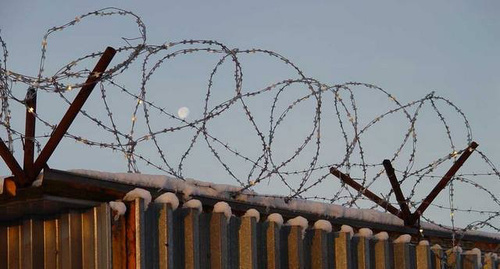
22 February 2015, 02:32
Colony inmates in KBR go on hunger strike, relatives assert
250 inmates kept in a high security colony in the Kabardino-Balkarian Republic (KBR) have gone on a hunger strike in protest against the inhuman treatment of two inmates, their relatives report. However, the colony bosses state that the information about the hunger strike is false.
According to relatives, on February 21, two prisoners, who had been placed into the dungeon of Colony No. 3, were beaten up; another inmate became a victim of abuse. "In response to this outrage, 250 prisoners went on hunger strike," one of relatives told the "Caucasian Knot" correspondent.
According to his story, the colony was already visited by officials of the Investigating Committee and the Prosecutor's Office, who promised that those guilty will be punished.
Information about the hunger strike has also reached the Public Oversight Commission (POC) of the KBR, said Magazali Endreev, the chairman thereof.
Relatives have not addressed the KBR's Ombudsman yet.
Full text of the article is available on the Russian page of 24/7 Internet agency ‘Caucasian Knot’.
Author: Yelena Romanova Source: CK correspondent




